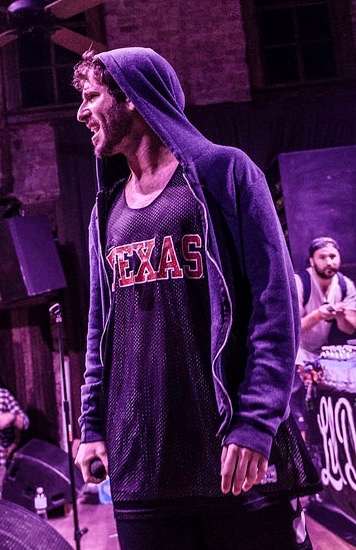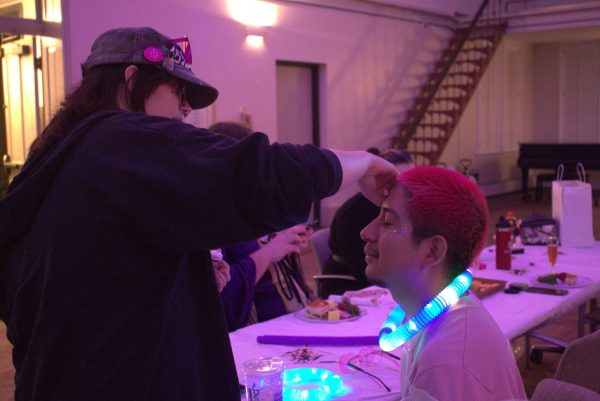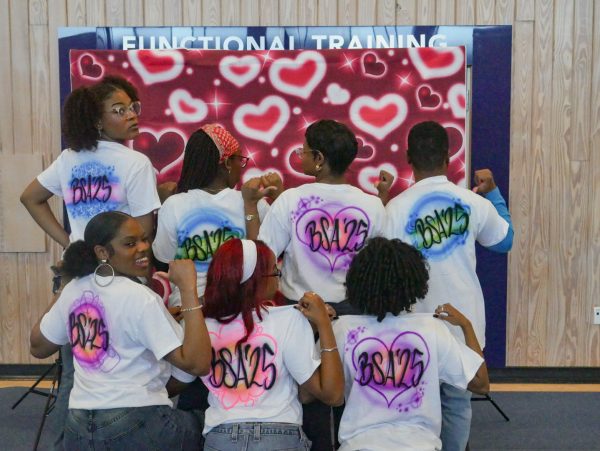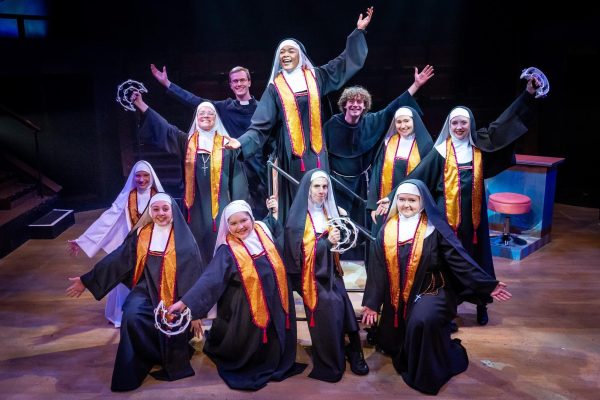FXX’s ‘Dave’ proves star’s lack of depth, talent

Dave “Lil Dicky” Burd released his first video six years ago on YouTube and since has amassed 23 million views. Lil Dicky today has amassed over six million months streams on Spotify.
There are many issues with “Dave,” FXX’s new rap comedy starring Dave Burd: it’s juvenile, reductive and, worst of all, boring. But it’s biggest problem is that Dave Burd isn’t Donald Glover. Whereas the latter is behind “Atlanta,” a profound dive into hip hop culture as well as race in America, the former is the co-creator of one long dick joke that can’t hide Burd’s relentless marketing strategy over actual talent.
Overall, “Dave,” is a show that follows Burd becoming the “greatest rapper alive,” yet each episode exposes his lack of acting ability, and most unforgivably, makes you wonder why the actual Burd is considered a musician at all.
To illustrate, the bane of shows about successful musicians is that the music has to be good in order to convince viewers the character should be successful.
At the end of the first episode, when viewers see guest star rapper YG complementing a Dicky freestyle containing such “gems” as “I just want a girl to let me hit it on a work day/I don’t think my dick has grown at all since the first grade,” any credibility the show might’ve had is obliterated by hearing Burd’s inept rap.
Even on an acting level, Burd is a black hole that detracts from his more talented co-stars. The pilot’s first scene, which has Burd listing his character’s various penial surgeries, only confirms Burd’s inability to sell jokes of any brow or make his character engaging in any way.
In other words, Burd isn’t a loveable character, nor one you love to hate. Rather, he’s simply someone you want to go away.
If possible, the second episode only furthers this perception by botching a great comedic setup. Burd is asked to perform at a young fan’s funeral since he was the deceased child’s favorite rapper, mainly because the child only listened to white rappers.
And yet, instead of mining the dark humor of Burd’s privilege, the joke never goes beyond his annoyance with being compared to Macklemore.
Therein lies the problem: Burd’s actual success comes from influencer-like tactics that stake success on shock value and big name celebrities, not depth or awareness — qualities essential to any great art. And like awful advertisements, the guest stars for these episodes are here for the check as well as to distract viewers from noticing how awful Burd’s product is; they’re not here because they respect him.
Few TV shows focus on the hip hop landscape, so seeing Burd’s half-hearted attempt to receive backing is infuriating, especially when one takes into account the implications of a white rapper receiving such opportunities over more marginalized artists.
Ironically, a show that actually focused on this music marketing would be interesting. But instead, viewers will have to make do with what Burd thinks will sell: yet another generic comedy. Needless to say, hip hop deserves better.







Randy • Apr 27, 2024 at 3:56 am
I think Dave does a great job at what he does I mean people are tuning in to watch the show. They download his music. He has fans he’s just different and most people don’t like different…
I think it’s going just like he planned for it to. Everything even down to the critics hating him he way smarter than he let’s on.
If you play a fool or a goof your not a threat then when no one’s looking you slip in and take it all.
Nikki • Jun 1, 2023 at 2:58 pm
thoughtful and incisive critique. The previews were so unappealing and this essay hits a lot of the unsaid problems I sensed about the show from any clips I’ve seen. Streaming platforms are screaming at me to watch it yet it looks so disappointing if you want more from a show than basic status quo “humor.”
Duncan McOkiner • May 2, 2020 at 1:16 am
You’re being kinda harsh. It’s a funny show and his bars are good.
john Davidson • Mar 31, 2020 at 9:14 pm
I actually think the show is funny! Lil Dicky is not an actor but there are funny moments in the show. Episode 3 is by far the best one.
Christian Derico • Mar 30, 2020 at 12:26 am
I actually enjoy the show a lot. I find it comparable to the new Wutang series on hulu and can’t wait for the episode to come out week by week. I actually find Lil Dicky’s acting enjoyable and I feel like he could have been successful in almost any career he chose. This article felt extremely biased and honestly outdated if you were to ask me. You must be tough to please
Morgan Osborne • Mar 14, 2020 at 9:39 pm
I actually like the show and think its fine. Episode three was really interesting. It dives into the relationship dynamic of today-between men with smaller penisis and women.
I didn’t like the first five episodes of Atlanta-so I think you still owe Dave five episodes or the season if you’re patient. Episode three proves this show has much more to offer and isn’t lackluster.
Dave is a great actor when given the right role-and this definitely is it. Here, he plays a modern, slightly neurotic, self-conscious guy-who has a lot to learn-thats the point of the show so far-Dave isn’t perfect. He just approaches everything ike he is. I’m interested in seeing where this show goes in terms of character-knowing its a semi-autobiography. Furthermore, Dave is interesting-sometimes profound and self-aware. You shouldn’t count all the chickens just yet.
Gen Ramsey • Mar 14, 2020 at 12:00 am
completely disagree. If your looking for cinematic depth go watch Handmaids Tale. This is the out of the box comedy we need in these times.
Ryan • Mar 13, 2020 at 5:59 pm
Hey Sarah, thank you for the review! It was a good read. I had some thoughts about what you said. I may be coming from a place of bias since I got to see and follow the start of Lil Dicky’s career, so I see the show in a different way. I think his acting style is very intentional. He is an extremely awkward guy who can actually express himself when he raps. His raps are unconventional on purpose. He raps about about his privileged life in one of the only industries that that ends up being a disadvantage. The only way he makes this work is because you are supposed to be able to laugh about it. His struggles are supposed to make you chuckle when you compare them to someone who actually had to grow up on the streets. Being compared to Macklemore isn’t just “oh, not another white rapper”. Macklemore is an entirely different genre from Lil Dicky. Being compared to Macklemore shows that the person isn’t actually listening/understanding the music. He ends up getting these opportunities because he is the one successfully carving a niche out. There hasn’t really been someone like Lil Dicky before. I do like your comparison to Donald Glover, but hopefully you realize that you can’t just stack these two together and compare successes. They had two different backgrounds that shaped them into two different people. I enjoyed your article and the time you put into it. Hopefully you like my thoughts!